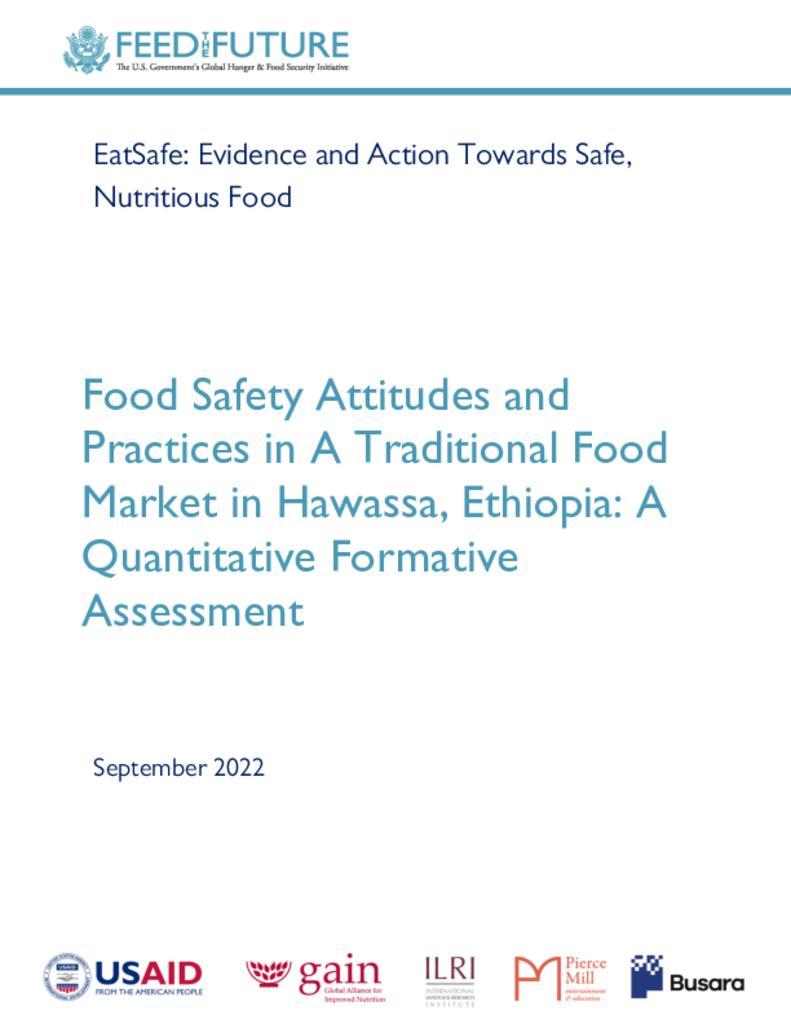This quantitative formative assessment sought to understand consumers' and vendors' knowledge, attitudes, and practices (KAP) about food safety in one traditional food market in Hawassa, Ethiopia. In July and August 2022, EatSafe surveyed 300 consumers and vendors (N=150 each). Given that EatSafe's key commodities in Ethiopia are kale, lettuce, and tomato, it is important to note that most vegetable vendors are women. Consumers were found to choose a particular vendor based on food quality, price, personality of the vendor, and the safety of the food. Vendors are generally not worried about foodborne disease, but were interested in learning more about bacteria or microbes the negative health effects of consuming unsafe food.
